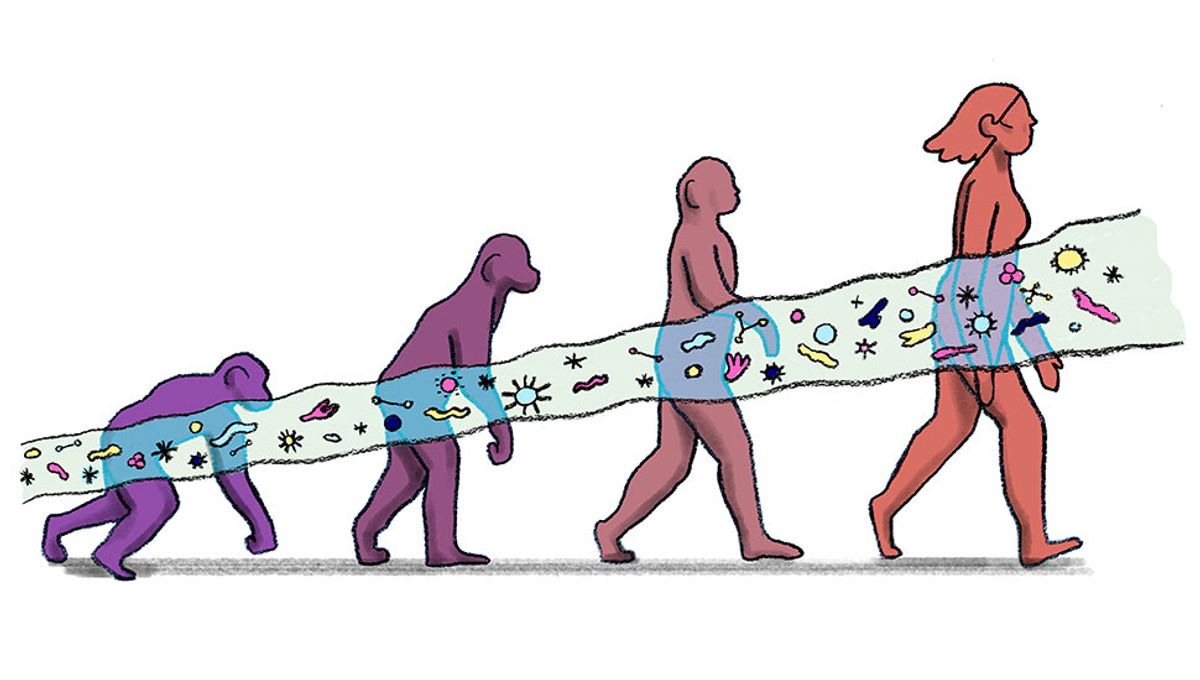
It may not always be obvious from reading certain social media comment sections, but we humans have really big brains for our body size. Growing a large brain takes a whole lot of energy, so it’s long been wondered exactly how evolution ended up sending us down this path. A new study is proposing an interesting solution, and it involves the minuscule species that live inside our guts.
Gut microbes are seriously hot stuff in biology and medicine right now, with a huge amount of research devoted to how the microscopic flora inside our intestines can shape various aspects of human health and bodily functions.
“We know the community of microbes living in the large intestine can produce compounds that affect aspects of human biology – for example, causing changes to metabolism that can lead to insulin resistance and weight gain,” said Katherine Amato, an associate professor at Northwestern University and senior author of the new study, in a statement.
What was not known was whether these effects could extend as far as shaping energy metabolism enough to play a role in the evolution of larger-than-average brains.
Amato and colleagues sought to investigate by inserting new gut bacteria into mice. They extracted gut microbes from stool samples taken from human volunteers and another large-brained primate species, the squirrel monkey, as well as small-brained macaques for comparison. The mice were germ-free, specialized research mice that are born and raised in a sterile environment and so have no microbiome of their own.
The results showed that the mice with microbes from larger-brained species produced and used more energy, as would be needed to develop a big brain. Those with microbes from the smaller-brained macaques stored more of their energy as fat. It’s the first time this has been shown experimentally, and it adds weight to the hypothesis that gut bacteria can help shape evolution.
“Variation in the gut microbiota is an unexplored mechanism in which primate metabolism could facilitate different brain-energetic requirements,” said Amato.
“While we did see that human-inoculated mice had some differences, the strongest pattern was the difference between large-brained primates (humans and squirrel monkeys) and smaller-brained primates (macaques).”
It was somewhat surprising that the mice inoculated with bacteria from humans and squirrel monkeys were found to be similar to each other – squirrel monkeys are not close relatives of ours in the primate family tree, so the authors suspect that the fact we both separately evolved large brains means we also separately evolved suitable gut flora to allow for that.
The next step for this research is to compare microbiomes from other primates with a range of brain sizes. The team also wants to dive deeper into the underlying biology – what compounds do these microbes produce, and how do they impact biological traits within the host species?
Overall, the study helps bring us closer to an answer to one of the most enduring questions in biology, and demonstrates how some of the biggest evolutionary differences between humans and other animals could have been shaped by the smallest hitchhikers inside our bodies.
The study is published in the journal Microbial Genomics.
Source Link: Why Are Human Brains So Impressively Big? Tiny Gut Bacteria Could Hold The Key